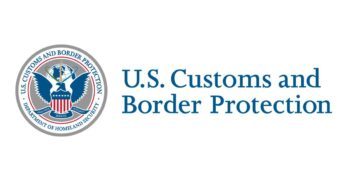By: Paul Fudacz, Senior Attorney
In June 2014, the Bureau of Customs and Border Protection (CBP) announced the Trusted Trader Pilot Program, described as a holistic cargo and conveyance security and compliance program designed to unify the supply chain security aspects of the Customs-Trade Partnership against Terrorism (C-TPAT) program, and the internal controls of the Importer Self-Assessment (ISA) processes into an integrated supply chain security and trade compliance program. The Program also includes coordination with other government agencies called “Partner Government Agencies” (PGA’s) such as the Food and Drug Administration, the Consumer Product Safety Commission, the Transportation Security Administration, as well as Authorized Economic Operator (AEO) / supply chain security programs implemented by other countries around the world.
The stated goals of the Trusted Trader Program were to strengthen security by leveraging the C-TPAT supply chain requirements and validation, identify low-risk trade entities for supply chain security and trade compliance, and increase the overall efficiency of trade by segmenting risk and processing by account. The benefit to the trade community was to enable CBP and PGAs to provide additional incentives to participating entities and enhance efficiencies of managing supply chain security and trade compliance within one partnership program. The Pilot Program was open to importers who had satisfied C-TPAT supply chain security and trade compliance requirements and CBP selected nine out of 56 importers who volunteered to participate in the 18 month pilot program, which is still in the test phase.
CBP had reported in July 2015, that the ISA and C-TPAT program unification began in March 2015, and that the integration of both programs was anticipated to be complete by the end of FY 2015. However, in CBP’s June 14, 2016 publication “Trusted Trader Framework Strategy Trade Compliance & Customs-Trade Partnership against Terrorism”, CBP stated that they were still working to complete the work of Phase I of the Trusted Trader pilot, and would be conducting an evaluation of the pilot performance and results, identifying lessons learned and best practices to ensure success of the Trade Compliance Program within the CBP Trusted Trader Strategy. Further, CBP stated they were still working to “transform the existing Importer Self-Assessment (ISA) program into the new Trade Compliance Program which will provide importers and exporters a process to achieve an integrated partnership program for security and compliance.”
In addition, in July 2016, the Subcommittee on Trusted Trader Program of the Commercial Customs Operations Advisory Committee (COAC), reported that the work of the Subcommittee has focused on creating a Trusted Trader Strategy document that outlines the future vision of an enhanced Trusted Trader Program and that the work was ongoing. Following a hiatus from July 2016 to November 2016, the subcommittee met on November 8, 2016 and reported it has and will continue focus on the following:
- Development of a Trade Compliance program to replace the current Importer Self-Assessment program based on the outcome of the Trusted Trader Pilot evaluation;
- An assessment of current and future benefits under the Trusted Trader program; and
- Completed a Trusted Trader Strategy framework for an enhanced Trusted Trader program that allows for flexibility, scalability, and attainability for multiple business models, that is globally aligned with AEO programs and MRAs, including PGAs. On-going finalization to determine tangible benefits while maintaining CBPs risk assessment capability.
With the rapidly approaching new year, it therefore appears that the earliest the Trusted Trade Program will be finalized is 2017, at which time current ISA participants will be able to better assess how participation in the Program could benefit their organization, and also attain a clear picture of the impact the transition will have on processes and procedures currently in place under separate C-TPAT and ISA programs.



























